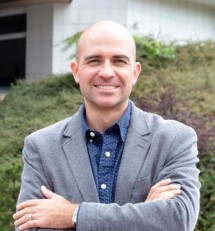
RESEARCH NEWS
The key to charity success: no deadlines
New economics research from the Macquarie Graduate School of Management says charities that impose long deadlines on donations will be less successful than those that don’t.
The study by Professor Maroš Servátka and his University of Otago co-authors Associate Professor Stephen Knowles and Lecturer Trudy Sullivan looked at the impact of imposing deadlines on charitable tasks, and found that having no deadline or a short deadline increased the likelihood that participants would respond quickly. A long deadline – a month in this case – reduced the response rate significantly.
“Having a long deadline implies to people that the task isn’t urgent, and they will procrastinate and ultimately forget,” Professor Servátka, who also directs the MGSM Experimental Economics Laboratory, said.
“In theory it would make sense that no deadline – which is an infinitely long deadline – would be seen the same way, but that’s not the result we got. We infer that no deadline is actually interpreted as urgency, as the bulk of ‘no deadline’ responses were received within a week, and more responses in the first three days than the ‘one month group’. This has policy implications not just for charities, but for organisations conducting surveys of all kinds.”
The biggest disparity in the study was between the sexes, with women almost twice as likely than men to respond. Both genders followed the same response timing patterns, indicating participants viewed deadlines or lack thereof the same way regardless of gender.
The field experiment was conducted on a representative sample of New Zealand population. It involved 3276 participants, half men and half women, randomly selected from the New Zealand electoral roll. Participants were sent a letter inviting them to take part in a five-minute online survey on charitable giving. Participants were informed that if they completed the survey the researchers would donate $10 to their choice of World Vision or the Salvation Army.
The no deadline group had a response rate of 8.32 per cent vs 5.53 per cent for the ‘one month’ group. Of the ‘one week’ group, 6.3 per cent responded.
